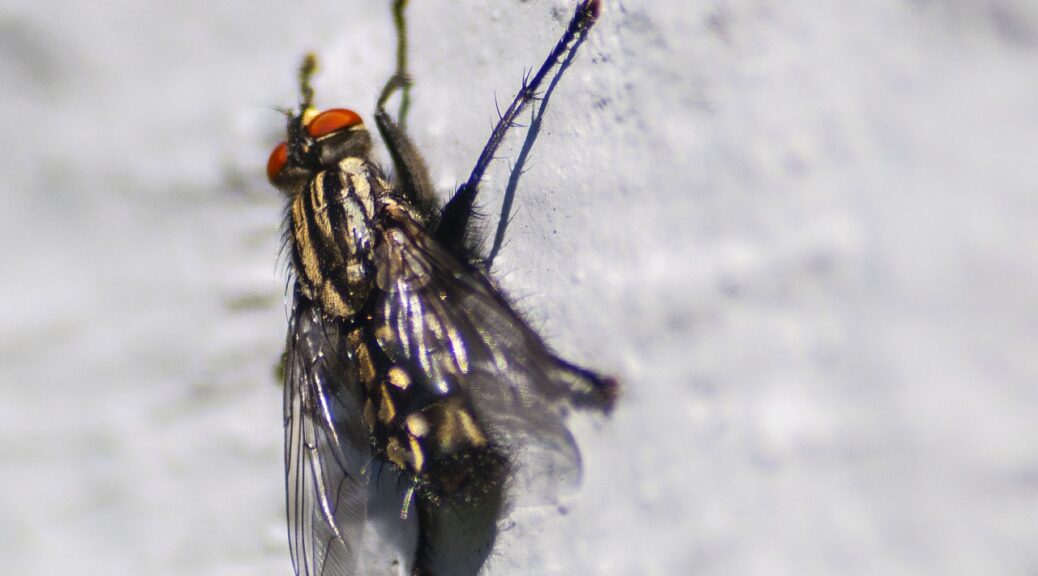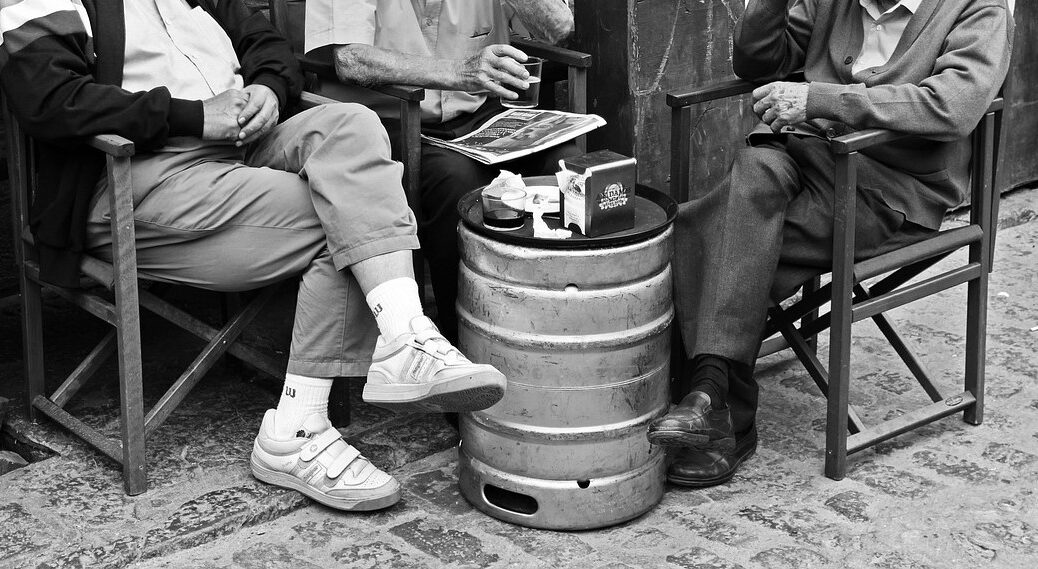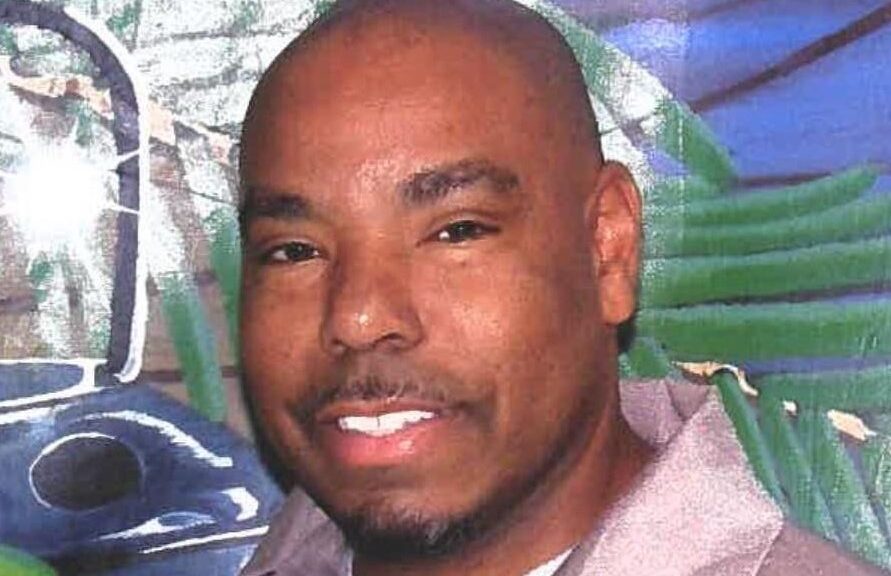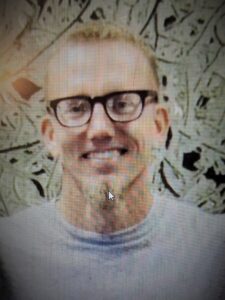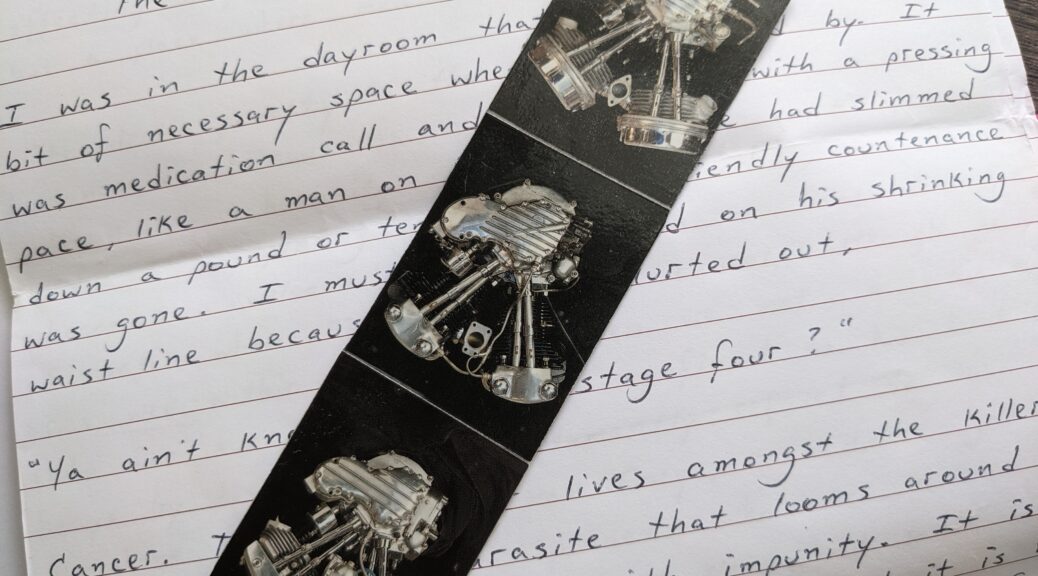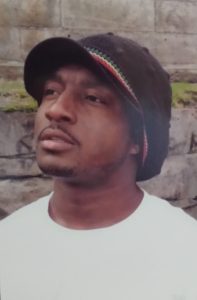I was always told beauty is only skin deep. It’s what’s inside a person that truly counts, so I’ve never been one to be critical of a person’s outward appearance. However, I also heard it preached that God don’t like ugly. And throughout my twenty odd years in the Department of Corrections, I must admit, I’ve seen some pretty ugly things. Perhaps some of the ugliest at the infamous Pasquotank Prison – more affectionately known as ‘Pass-a-shank’, just to give you an idea.
During my extended stay there, I recall there was one particular female officer, let’s just say, she had a peculiar way with the inmate population. Ms. CO wasn’t the most attractive woman, but she was a woman, and that’s worth a good five points on the scale in an all men’s facility. She kept her hair and nails done, and if you saw her from the back, you’d forget any of her shortcomings. And, like I said, I’m not one to be all judgemental, and I try to treat all God’s children the same. But, like I also said, it’s what’s on the inside that counts, and Ms. CO must’ve been a little foul on the inside, because she sure spoke foul in abundance.
I, myself, never had any run-ins with Ms. CO, and we were no less than cordial when interacting. However, I did know she was a pit viper, always ready to strike. After witnessing one of her venomous attacks, I did my best to steer clear. She didn’t need much provoking, and she certainly wasn’t holding anything back.
I remember once, our TV had been inadvertently turned off by the control booth officer and some brave soul took it upon himself to ask Ms. CO about it.
“Hey, Ms. CO… tell ‘em to turn the TV back on,” the guy casually said.
Now, all Ms. CO had to do was simply radio the officer in the booth and correct the mishap, but nothing was ever simple with Ms. CO.
“Fuck that TV, I’m on my way home!” she snapped, spinning on her heels.
“Dumb bitch,” someone mumbled.
Instantly, Ms. CO spun back around. Her eyes narrowed into slits, as she honed in on her target. With unadulterated vitriol, she spewed her venomous rage, “Dumb bitch? No, you the dumb bitch, locked up in here on yo’ knees at night. I’m going home. Like I said, fuck that TV!”
The cell block went deathly silent. You could practically hear the shattering of her victim’s face, as it hit the floor. There was momentary shock, before the spread of hushed murmurs and snickering.
These weren’t the types of words you spoke to a man, especially not a man in prison. Adding insult to injury, the words not only came from an officer, but a female officer, an absolute challenge to his manhood and integrity. I prayed for the man’s restraint, and praised him for it. I’m not even certain Ms. CO had the right culprit.
This was but one of her many vicious verbal assaults, and some were a lot more vulgar and degrading. It was a common occurrence. Ms. CO was known to pepper at least two or three people with her spicy speech every time she stepped in the building. Another such incident occurred while we were in the canteen line. A young brother came out of the block be-bopping, talking loud, saluting all the homies; just being young. However, he hadn’t yet met Ms. CO, wasn’t even aware she’d set her sights on him.
Once he did take notice of her icy stare, the young man froze in his tracks. First, giving himself a lookover, he turned to Ms. CO and asked, “What?”
Ms. CO’s neck and eyes rolled slowly, like an uncoiling serpent.
“What?” she hissed, taken aback by the perceived insolence. “Boy, you know the rules!” she added with a snap.
“First of all, I ain’t no boy, and…”
Before he could finish, Ms. CO lit into him. “Boy, you whatever I say you is. Now, go back to the block. No canteen for you…” Ms. CO said with a dismissive wave before adding, “And if another mutha’ fucka’ come out here with their shirt untucked, I’m shutting this shit down, and won’t nobody be getting canteen!”
The young man took a very quick and aggressive step toward Ms. CO, but an “O.G.” stepped in front of him.
“Chill, cuz… Just go on back; I got you.”
Ms. CO eyed the intervening man and slightly snarled. Then, to the young man, “Bye! Go!” emphasized by bulging eyes.
The young man looked from Ms. CO to his, or maybe her, savior and shook his head in frustration. The O.G. gave him a knowing and appreciative nod.
Once the scene had died down and the line resumed, the O.G. finally spoke.
“Ms. CO,” he thoughtfully began.
She appeared to be listening, but also looked very uninterested.
“You know… you got to mind how you speak to people.”
“I ain’t got to do sh…” she attempted, but the O.G. silenced her with the subtle raise of his hand.
“You right. You ain’t got to do shit, but it would be in all our best interests if you considered how you talk to people. You just can’t go around lighting any and everybody up… Some niggaz’ ain’t going home and ain’t got shit to lose.”
Ms. CO looked to be halfheartedly listening, but before she could interject, he added, “If that ain’t enough… just remember, God don’t like ugly.”
With that, the man turned to leave, without going to canteen.
I don’t know if Ms. CO took heed to anything the good brother said, but things did seem to quiet down, at least for a little while. That is, until they paired Ms. CO with another young lady, who also bore an equally burdensome chip on her shoulder. The young sister felt she had something to prove to all ‘the bros’ on the yard.
Once united, this deranged duo clicked tight and unleashed a wicked wrath. There were shakedowns, lockdowns, and plenty verbal beatdowns. They hated the strong and stomped out the weak. You did good if you were able to stay clear and stay quiet, as myself and a few others managed, becoming the proverbial fly on the wall. It was from that very vantage point I witnessed the most gruesome attack I’d ever seen.
One day, while I was on the phone, I noticed a ruckus stirring in the next block. I couldn’t quite see what was going on, but I was accustomed to steering clear. It wasn’t until later I would find out Ms. CO’s cohort was being viciously beaten in an area known as ‘no man’s land’, far from help and obscure from view.
Though I couldn’t see what was happening while I was on the phone, I could see a friend of mine also talking on the phone. He calmly carried on his conversation, watching the melee from the angle he had as if it were another dull ballgame. From the outside looking in, you would have never imagined the drama unfolding before his eyes; nor the drama to which his life had just succumbed. After recently finishing a ten year stretch, he was back in less than a year. This time, sadly, leaving behind not only his family, but exchanging his newly gained freedom for a fresh thirty-seven year sentence. Another ruined recidivist.
It was about then, Ms. CO made her way into the block. D.O.C. so valued their loyal and faithful minions that these two female officers were the only officers on duty, expected to monitor and control ninety-six grown men. The admin-instructor had pumped their head full of, “I think I can!”
Flying to the rescue, Ms. CO whipped out her retractable baton, the metal stick locking in place. Barking commands, she parted the sea of rowdy bystanders, headed to aid her fallen co-worker. I’ll spare you the gory details, but Ms. CO never made it beyond the wall phone. I watched as that friend who’d been on the phone calmly cradled the receiver and just as calmly grabbed Ms. CO by the wrist. Snatching the baton from her hand, he commenced with a brutal beating. In the end, the baton was broken as well as one of his hands. I’m not sure what happened, but the jovial jokester I once knew was no more. This enraged man was exorcizing every demon that tormented him, both within and without.
The cavalry’s clumsy arrival was far too late. The damage was done and the needed repair immeasurable. Ms. CO and her partner were carted out and never seen again. The two men who carried out the savage sacrifice also met an impending fate. My heart goes out to them all, the sisters who were pawns in a grander scheme; the brothers who fell victim to yet another of the system’s treacherous traps. I will never condone violence against anyone, neither am I a fan of the merciless abuse of authority.
Days later, while watching the evening news, there was a report on the attack. Allegedly, Ms. CO sustained a fractured orbital socket, a broken jaw, twenty staples and numerous stitches. Shaking my head, I said a silent prayer and thought, ‘God don’t like ugly.’
ABOUT THE WRITER. I have a lot of favorite writers, and Carter is one of them. He has a natural talent and relatable style. And, honestly, there is so much to think about in this essay, it is hard subject matter to tackle, and I think he did it very well. Carter is extremely interested in furthering his education, but those opportunities are close to none where he is currently at and in his current situation. But that doesn’t stop him, he is still driven and motivated to take positive steps, and I’m so grateful that he shares his writing here. Carter is also a co-author of Beneath Our Numbers.
If you would like to contact Carter Cooper, please reach out to me directly.
![]()
